We made a difference for that one… Liberia 2019
Today we met our first pangolin, brought to the hospital campus to be sold, most likely for stew meat. The pangolin is a small, scaled mammal that looks a bit like an armadillo. They are one of the most trafficked mammals in the world and are protected under national and international laws. Not unlike some of the human visitors to Duside, this pangolin, accompanied by a confident adult, seemed very unsure of what the day might hold.
Fortunately for the children at Duside, what lay in store was a small amount of discomfort in exchange for a significant step toward a better life. The sting of an IV was followed by the elimination of a hernia or the restoration of the body’s normal anatomy. The pangolin was not facing such a fair transaction. This spurred a debate amongst several team members and visiting embassy members. A proposal arose: What if we pay the $10 (the going rate for 3 pounds of fresh pangolin), drive it a few kilometers past the gate, and return it to its bush home in a tree? “No, that’s not the official stance on endangered edible animal management in Africa,” one of the embassy members pointed out. That practice risks encouraging more pangolin trafficking.
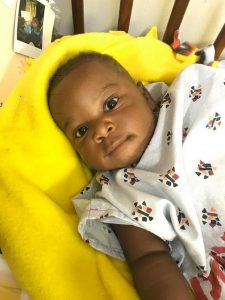
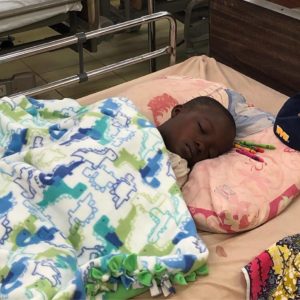
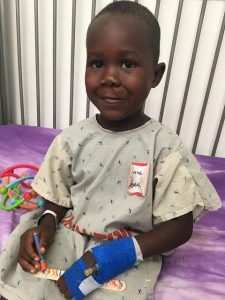
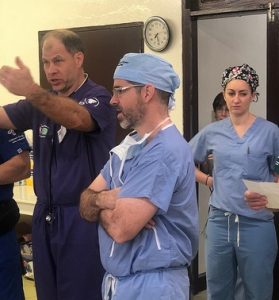
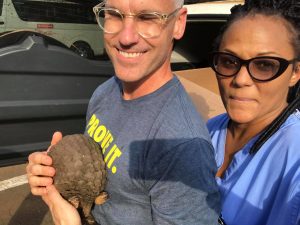
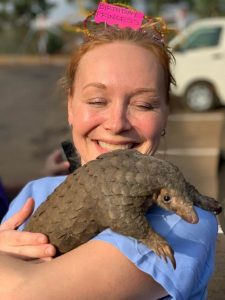
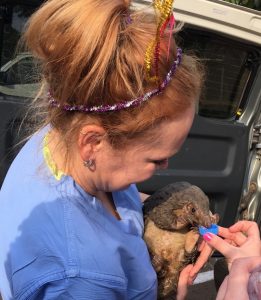
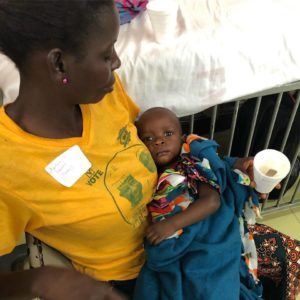
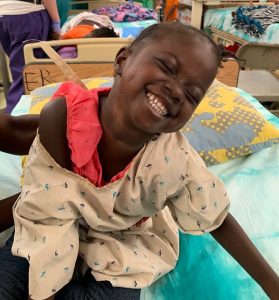
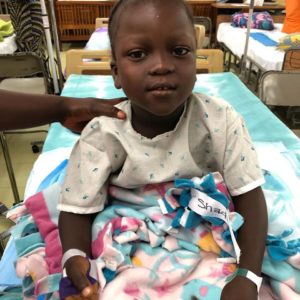
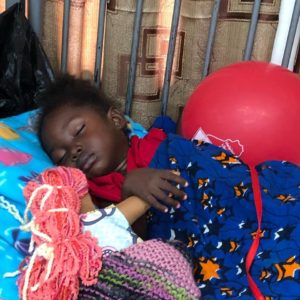
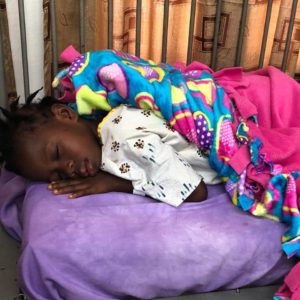
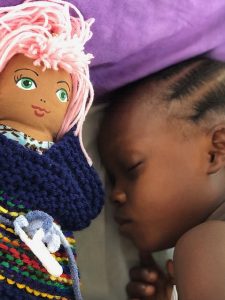
The philosophical conundrum got me thinking about the parallels in our week’s endeavors. Sure, springing the pangolin may not stymie the hunting of her species or even affect her type’s declining numbers. But spending the liberating $10 would be a life-altering action for her. The same philosophy applies to our work here.
Our seemingly small CSI presence may not change the existence of viruses like Ebola that can make an orphan of a 12-year-old within 72 hours. Nor can it change the fact that thousands of children are born with maladies that go untreated because they can’t access care. But for the 12-year-old orphan (who not only lost both parents to Ebola two years ago but also had lived his whole life with a giant hernia) and the other 90 children who had surgery this week, our presence ensured that tomorrow would be better than yesterday. And maybe, with the new skills and knowledge of our Liberian colleagues, we helped improve access to care for years to come.
At the celebration today, as 250 Liberians and Americans gathered to express mutual thanks, I think everybody was arriving at the same conclusion: You may not change the world, but you can make somebody smile, help somebody feel better, make somebody feel safe — and that makes for a good day.
~ Eric Moore, MD, CSI surgeon
Check out more photos from Liberia here!

